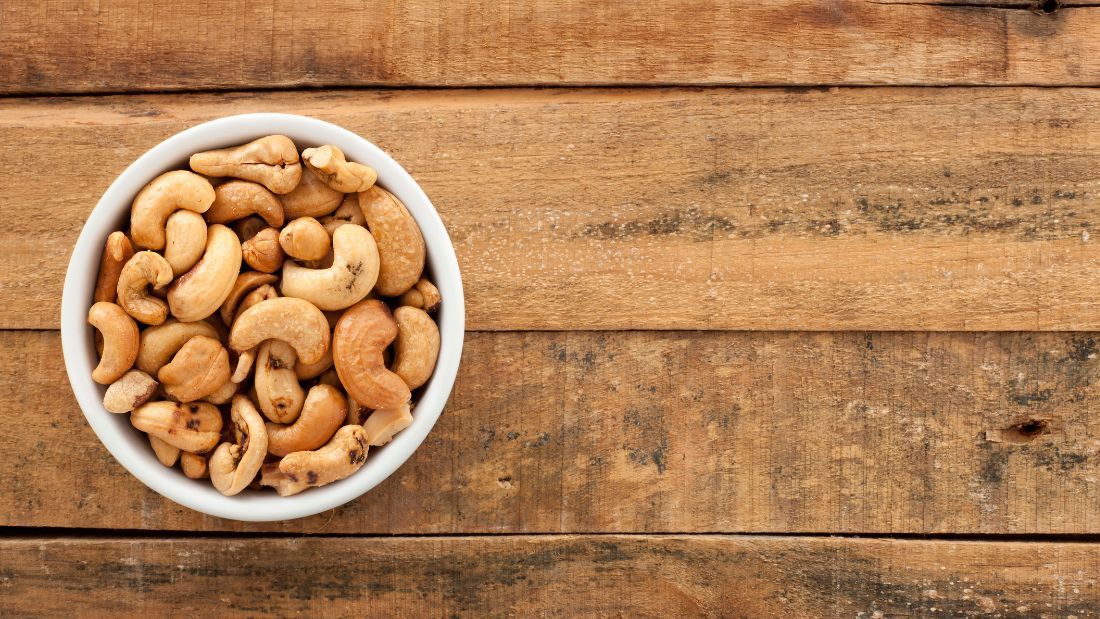Cashews

The cashew tree is native to South America but is grown across tropical areas all over the world thanks to cashew nut popularity. Each nut is attached to a cashew apple – a fruit that is edible but highly perishable so the nut itself is the main star of the tree.
Nutrition
An ounce of cashew nuts (a small handful) offers over five grams of protein, one gram of fibre and 12 grams of fat, most of which is monounsaturated – not essential but not harmful.
When it comes to micronutrients, cashews offer small amounts of vitamin E and B group vitamins and a large dose of vitamin K – one ounce covering about 12 per cent of your daily needs. Vitamin K is important for healthy blood clotting and strong bones.
Cashews are also a good source of iron, zinc, selenium and magnesium. One ounce contains almost two milligrams of iron and considering that the recommended daily dose of iron for women under the age of 50 is 14.8 milligrams and 8.7 milligrams for everyone else, cashews are a rich source. That same one ounce of cashews also provides up to a quarter of your recommended daily zinc dose, essential for a healthy immune system, skin and eyesight.
Lastly, cashews provide health-protective antioxidants – mainly polyphenols and carotenoids. These are anti-inflammatory and help protect your body from damage. Interestingly, roasted cashews have more antioxidants than unroasted – it’s usually the other way round!
Ethics
Unfortunately, the cashew industry is infamous for mistreating its workers. This is largely due to the fact that cashew harvesting and processing is very labour-intensive and the demand for cheap cashews is high.
Cashews are toxic to the touch when they’re picked because their shell contains the toxic oil urushiol – it causes blistering, rashes, itching and swelling. On top of that, there are several other compounds in the shell that are strong skin irritants. Once the nuts are peeled, dried and heat-treated, they’re no longer toxic and we can enjoy them. However, the workers doing all the processing experience all these nasty effects and their hands are often burnt raw. They can use gloves but have to pay for them themselves and they slow them down – that’s a major issue because the workers are paid when they meet production quotas and not per hour.
The solution? Fair trade cashews. They are pricier but you have the certainty that the workers who picked and processed them were paid a living wage and didn’t pay for them with their health.
How to use cashews?
Cashew nuts are incredibly popular not just because they taste great but they provide that lovely creaminess we often crave. Try making cashew cheese, adding them to savoury dishes or using them in cheesecakes.
Find your cashew inspiration at our Vegan Recipe Club.




